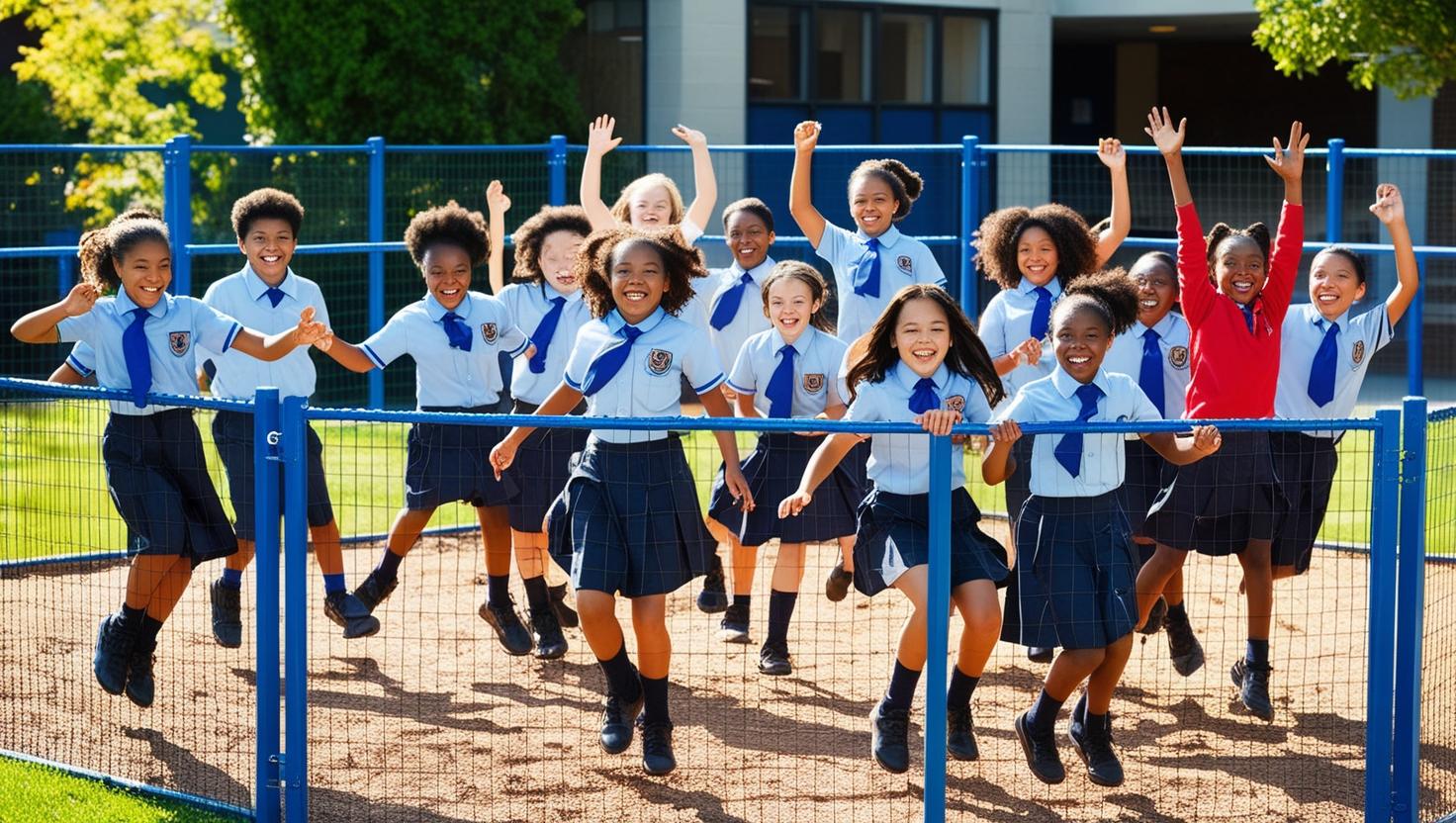What About a Foreign Language School?
In the United States, a foreign language private school is a school in which the primary language is not English. 80% of our population speaks English. Therefore, it follows that private schools that teach in other languages are few and far between.
I also want to point out the difference between a K-12 private school that uses a language other than English for teaching and intra-school communications and proprietary schools that offer instruction in foreign languages.
- K-12 private schools that teach their students in German or French, for example, offer a comprehensive academic curriculum with specified goals and objectives for their graduates.
- The proprietary foreign language schools generally aim to have their students achieve fluency at varying levels in a foreign language.
- For example, you could learn how to speak Spanish in a business setting, starting at a beginner's level and working your way up to advanced proficiency.
 Reasons Why You Would Consider Foreign Language Schools
Reasons Why You Would Consider Foreign Language Schools
Now, back to our original question.
- Why would parents consider a foreign language school for their children?
- For several reasons, the first of which is job-related.
Let's say that you are a German national who is an executive with a German firm with locations in the United States.
- Your firm decides to post you overseas in the New York office.
- Your children are ages 10 and 12.
- What will you do about their schooling?
- You know that the posting in New York is likely to be no more than three to five years, at which point you will return to Germany.
That's where the foreign language school becomes an option.
The German International School in White Plains, New York, for example, offers a high school curriculum that is college preparatory.
- The school uses the same challenging Gymnasium system as you would expect to find back home in Germany.
- Not only can you be assured of your children receiving an education that is recognized back home, but your company will also more than likely pay for your children's schooling as part of your expatriate compensation package.
German Schools
- German International School, Beaverton, OR
- German School Washington DC, Potomac, MD
- German International School New York, White Plains, NY
- German International School Boston, Allston, MA.
Japanese Schools
Private schools that follow the Japanese educational system afford parents the opportunity to educate their children in a mainstream setting with minimal influence from foreign cultures.
- If this is something that is important to you, be sure to ask questions about what curriculum is used in the school or schools that you are investigating.
- Determine the strength of the Japanese cultural component before you decide to send your child to a particular school.
- Of course, if your choice of school is limited, you will have to figure out how to provide the kind of cultural influences that you feel are important.
- Actually, this is true no matter what school you choose.
- Ultimately, it is up to you to ensure that your child is schooled as you wish.
If you need reassurance that students at foreign language schools are involved in their communities, this video makes that case very clear.
- Seigakuin Atlanta International School, Atlanta, GA
- Chicago Futabakai Japanese School, Chicago, IL
- Japanese School of Guam, Mangilao, Guam
- Keio Academy of New York, Purchase, NY
- Lyceum Kennedy International School, Ardsley, NY
- The New Jersey Japanese School, Oakland, NJ
- The Greenwich Japanese School, Greenwich, CT
- Nishiyamato Academy of California, Lomita, CA
French Schools
Many French language schools offer their high school graduates the option to earn both an American high school diploma as well as the French Baccalaureate. Ask about the curriculum and find out where their graduates matriculate when you are researching schools.
Children learn languages a lot quicker than we adults do.
- Austin International School, Austin, TX
- The Awty International School, Houston, TX
- Dallas International School, Dallas, TX
- Denver Montclair International School, Denver, CO
- Atlanta International School, Atlanta, GA
- Ecole Bilingue de Berkeley, Berkeley, CA
- Ecole Bilingue de La Nouvelle-Orleans, New Orleans, LA
- Ecole Internationale de New York, New York, NY
- The French Academy of New Milford, New Milford, NJ
- The French Academy of Minnesota, St. Louis Park, MN
- French American International School, Portland, OR
- French American School of Chicago, Chicago, IL
- The French American School of Miami, South Miami, FL
- French American School of Puget Sound, Mercer Island, WA
- French American School of New York, Larchmont, NY
- French American School of Princeton, Princeton, NJ
- The French American School of Rhode Island, Providence, RI
- French American School of Silicon Valley, Sunnyvale, CA
- French Bilingual School of South Carolina, Greenville, SC
- French Immersion School of Washington, Bellevue, WA
- French International School of Philadelphia, Bala Cynwyd, PA
- French School of Detroit, Bloomfield Hills, MI
- French School of Maine, South Freeport, ME
- International School of Arizona, Scottsdale, AZ
- International High School, San Francisco, CA
- International School of Brooklyn, Brooklyn, NY
- International School of Boston, Cambridge, MA
- International School of Indiana, Indianapolis, IN
- The International School of the Peninsula, Palo Alto, CA
- Lycee Francais de Chicago, Chicago, IL
- Le Lycee Francais de Los Angeles, Los Angeles, CA
- Lycee Franco-Americain International School, Hollywood, FL
- Lycee International de Los Angeles, Burbank, CA
- Lycee Rochambeau-French International School, Bethesda, MD
- Lycee Francais de New York, New York, NY
- Lyceum Kennedy, New York, NY
- San Diego French-American School, La Jolla, CA
- United Nations International School, New York, NY
English Schools
I know! I know! English is not a foreign language. However, the reality is that the British use a different system of education than Americans. We may share the same language, but words and expressions have pretty different meanings, as you are well aware. So, if a British-style education is essential to you, you ought to explore these proprietary British schools. If a somewhat less orthodox approach works for you, then explore schools with "international" in their names. Many of these schools will offer the International Baccalaureate Diploma Programme. The IB diplomas are recognized worldwide.
- British School of Boston, Boston, MA
- British American School of Charlotte, Charlotte, NC
- British School of Chicago, IL
- British School of Houston, Houston, TX
- British School of Washington, DC
Other languages
Depending on the area, you may well find day schools offering other language options such as Chinese, Hebrew, and Arabic.
- In some cases where the local demographics do not support operating a day school, you most likely will find courses in various languages and cultures that take place after school and on weekends.
- These courses may be offered by for-profit and non-profit organizations.
Conclusion
Foreign language schools offer unique educational opportunities for both international families and those seeking comprehensive bilingual education. Whether you're an expatriate executive ensuring educational continuity for your children or a family prioritizing language immersion, these specialized institutions provide rigorous academics while maintaining cultural connections. The key is to carefully evaluate each school's curriculum, cultural components, and academic recognition to ensure alignment with your educational goals and future plans.
I would suggest looking into this education option in situations where you have identified a day school that offers everything you are looking for except for the language and cultural instruction components. Your children's language programs then become an enrichment activity that you can tailor to suit your particular needs and requirements.
Questions? Contact us on Facebook, Instagram, or YouTube. @privateschoolreview
#PrivateSchools #PrivateSchoolsNearMe #ForeignLanguage #BilingualEducation #InternationalSchools #LanguageImmersion























